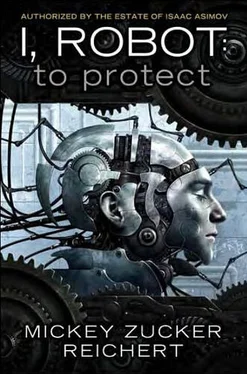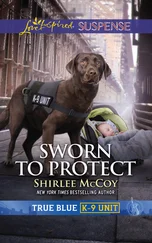“Good afternoon, Dr. Anson,” Shaden replied respectfully.
Susan addressed the mother, still sitting on the chair where Sharicka had recently perched in her lap. “Hello, Dr. Anson.”
Susan shut the door as the others took seats around the table; then she joined them. The couple sat together, doctor and nurse across from them. Lucianne spoke first, “Sharicka says you ‘fixed’ her. I hope she doesn’t mean . . .”
They all chuckled, though somewhat uneasily. The idea had to flash through more minds than just Susan’s that Sharicka should never bear children. It chilled her to even consider the cruelties someone like Sharicka could inflict on a helpless infant. “Sharicka will always be Sharicka,” Susan said. “I’m concerned we’re all prematurely optimistic, but I have to admit she does seem to have become honestly committed to improving her life and the lives of those around her.”
Shaden nodded vigorously. “She credits Dr. Calvin with inspiring her to do her best. She’s taking her medications like clockwork, and she hasn’t acted impulsively in days. She’s even made some real friends among the other patients.”
Though Susan could not deny the truth of those statements, she wished Shaden would tone down his rhetoric. The Ansons had seen the many cycles of Sharicka, and they knew better than to pin their hopes on a few days of cooperation — or so she hoped. She had read enough books, had studied enough couples and parents, to know human emotions lived in the moment. She had seen mothers in supermarkets ready to fricassee their young one moment and buying them ice cream the next. Nature had endowed children with the ability to bring out the best and worst in adults from moment to moment, and love tended to drive humans to illogical faith and actions.
Lucianne sucked in a deep breath, releasing it gradually through pursed lips. “You say she’s committed to improving her life. But, given her” — she glanced at Shaden, then back to Susan — “her diagnosis, is that even possible? Can she even understand morality? The difference between right and wrong?”
“All sociopaths understand the difference between right and wrong, especially ones as intelligent and well-raised as Sharicka,” Susan replied. “I’ll bet she could recite the rules of your household, and the reasons for them, in her sleep. What they lack is empathy, compassion, guilt, remorse.”
Susan took the discussion into the realm of Lucianne’s understanding, childhood special education. “You know how children with a nonverbal learning disability rely on spoken words and explanations? They can’t intuitively grasp nonverbal communication. They don’t ‘get’ tone of voice, figures of speech, gestures, personal space, facial expressions, humor, and so forth?”
Lucianne and Elliot both nodded, and the mother added, “If you catch it early, those things can be taught with repetition, verbal explanations, physical outlines, and behavioral rewards. It works for higher-functioning autistics, too.”
Susan appreciated that they had not only followed her example but improved upon it. “If you start young enough, you can internalize the lessons to the point where at least some of those skills can seem almost normal. Kids with NLD can eventually use idioms correctly. They may not tell jokes, but they know one when they hear it and laugh in the appropriate places. Their own faces may be expressionless, but they learn to recognize other people’s moods by rote.”
“Right.” Lucianne cocked her head in consideration. Color formed in her cheeks and gradually spread to light her entire face. “Are you suggesting we might be able to teach Sharicka . . . remorse and compassion?”
Susan did not know. Historically, the success rate for treating people with sociopathy was abysmal. However, that had changed in the last few years with the creation of the second-generation neurotransmitter stabilizers. Since antisocial personality disorder could not technically be diagnosed before age eighteen, the literature about treating children for it was nonexistent. She wondered if they had just stumbled upon a brand-new treatment for juvenile conduct disorders. “I’m not sure,” she admitted. “Until now, Sharicka hadn’t shown any insight into her problem. Now that she acknowledges it, and has expressed and acted upon the intention to change, I think we might have a chance.”
Elliot laced his fingers on the tabletop. “She does seem . . . different,” he admitted. “More like . . . our Sharicka. The one who used to fall asleep watching a movie in my lap. The one who loved ‘hangaburs’ and ‘pockasickles’ for dinner and begged for just one more story at night.”
Lucianne smiled at the memory. For the first time since Susan had met her, she looked like a typical mother misty-eyed over a child’s scribbled drawing of her. “Do you think . . . now that she’s really taking her medication . . . ?”
Susan felt torn. “I think . . . she is really trying, yes.”
“She loves your family,” Shaden cut in.
Susan did not like his phraseology. It made it sound as if Sharicka stood apart, that they had never really accepted her as a full-fledged member. “She loves her family,” Susan corrected. “I’m sure she always has, but she had more difficulty expressing it off her meds. Now, she talks about you . . . wistfully. She wants to go home.” Susan realized just how differently her conversation was going with the Ansons this time, and felt awkwardly balanced on a swaying tightrope. She wanted to encourage them to look at the situation more positively; success never came out of a defeatist attitude. However, she did not want to get their hopes so high that they dropped all caution. Sharicka was still a very sick little girl.
The father scratched his beardless chin. “Dr. Calvin, it sounds as though you’re saying you . . . fixed Sharicka.”
Susan shook her head. “I didn’t do anything but observe her. Sharicka heard I had helped some other patients, and it inspired her. She’s making changes all on her own, and I think that’s a good sign.”
The mother looked from her husband to Susan and back again. She glanced briefly at Shaden before returning her attention to Susan. “Some people don’t believe there’s anything wrong with Sharicka. She’s good at . . . making people think she’s” — she turned her gaze to her husband, as if seeking his assistance — “misunderstood. When, actually, she’s . . . sneaky. And frequently mean.”
Shaden frowned. Susan touched his leg warningly under the table, and he did not speak aloud.
“You know me better than that, Dr. Anson.” Susan tried to fully capture the mother’s attention. She had eyes so pale they seemed almost colorless, a steely gray with just a hint of blue. “Sharicka has a serious psychiatric condition. However, she is four years old, and we can’t keep her in the hospital indefinitely.”
“We talked about an institution,” Lucianne reminded her.
Susan knew the Ansons liked her because she had never downplayed the significance of Sharicka’s illness the way most providers did, and she had never questioned their integrity or intentions toward their daughter. Suddenly, Susan felt like a traitor. “I’ve looked into that. There’s not a single institution in the country that will take a child under the age of thirteen.” She tried to dodge Lucianne’s stare. “There’s no possible way we can keep her here for a year, let alone nine years. At some point, we have to release Sharicka to a family. She’s your daughter, first and foremost, but we would all understand if you decided yours was not the right home for her.”
Lucianne followed Susan’s gaze, refusing escape. “You can’t possibly be talking discharge.”
Читать дальше












